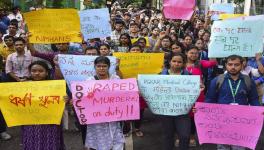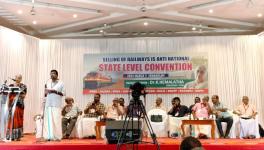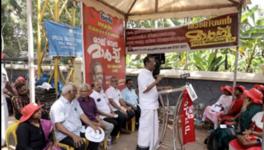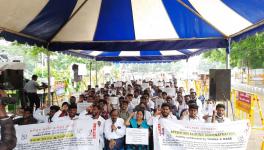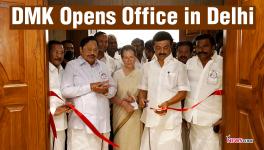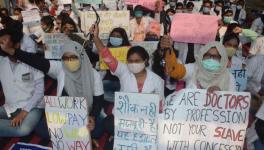TN: Mini Clinic Doctors Protest Demanding Extension of Contract and Permanent Jobs
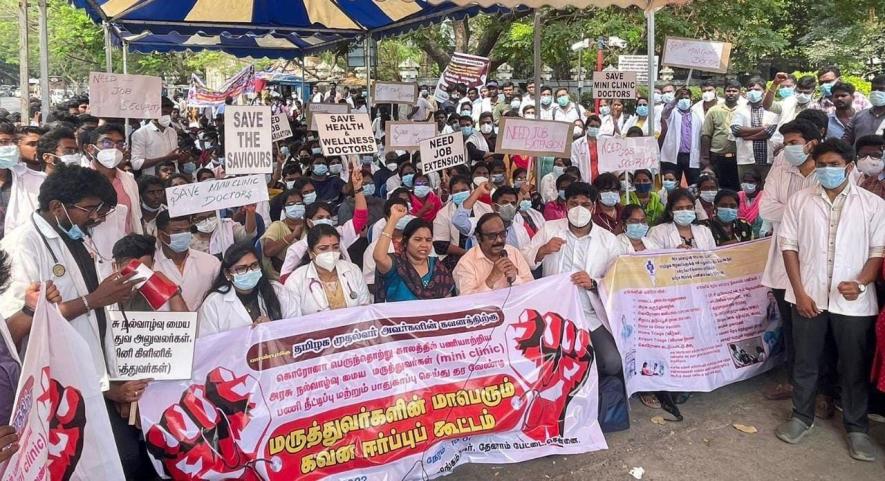
The doctors and staff of AMMA clinics held a protest on March 23 demanding extension of services and permanent jobs.
The doctors appointed in the ‘Mini Clinics’ or ‘AMMA Clinics’ launched a year ago are set to lose jobs by March 31, 2022, with the present government deciding to discontinue the scheme. The previous government launched the scheme with much fanfare, without much preparation.
There are around 1,600 doctors and 3,600 multipurpose hospital workers whose contract ends by the end of the month. Around 1,000 doctors held a protest in Chennai demanding the withdrawal of their terminations on March 23, forcing the government to hold talks today.
Though the health minister has assured priority for these doctors in future government appointments, the doctors demand extension of service and special recruitment drive through the medical recruitment board (MRB) to absorb the doctors who extended their services during the pandemic.
The introduction of contractualisation, even in a crucial sector like public health, has become a norm in the post-neo-liberalisation period. Despite its commitment to ensuring affordable healthcare, the state is moving towards privatising the health sector.
‘TALKS INCONCLUSIVE’
After the protest was held by the doctors of the mini-clinics, the health minister held talks on March 24 on the demands. The doctors have claimed that no concrete promises were made, despite the request to extend the contract and special drive by the MRB.
G R Ravindranath, general secretary of the Doctors Association for Social Equality, said that the decision to terminate the services must be reconsidered. “There is no concrete assurance made during the talks. The doctors and other staff shall be absorbed through a special recruitment drive so that their services continue for the needy,” he said.
The contract of doctors, nurses and assistants, also called multipurpose hospital workers, expires on March 31, as the new government decided to terminate the scheme citing non-performance. The information of termination of services was published through a government order (GO) dated March 18.
“Not only the doctors and staff in mini-clinics, but another 1,500 doctors appointed exclusively for COVID-19 duties are also facing a threat to their jobs. Their contracts must also be extended, considering the need for quality and free healthcare services,” Ravindranath said.
‘RECOGNISE SERVICES’
The mini-clinics were established in December 2020 by the previous All India Anna Dravida Munnetra Kazhagam (AIADMK) regime as a flagship program of ensuring healthcare services in rural areas. The second pandemic wave forced these doctors and staff into COVID-19 duties.
The doctors were involved in mini-clinic works only for a couple of months, following which the state was hit hard by the third wave of the pandemic.
“The services of the doctors and multipurpose hospital workers must be recognised. They have extended exemplary services during the pandemic. Their contracts should not be terminated,” he said.
The Doctors Association for Social Equality will hold another protest on March 30, reiterating the government not to end the services of the doctors and staff. The payment to the doctors and staff were pending for more than three months until an order instructed the disbursal of salary through the national health mission.
“Similar is the fate of doctors who were appointed for COVID-19 duties. Around 3,600 doctors working in primary health centres (PHC), medical colleges, taluk and district hospitals are on contract, and their services may be terminated soon,” Ravindranath said.
BANE OF CONTRACTUALISATION
Tamil Nadu is a pioneer in healthcare services, with a strong network of PHC, urban health centres, taluk and district hospitals, apart from the medical colleges. Since the introduction of neo-liberal policies in the 1990s, the concept of contract work even in healthcare has become a bane.
The reduction in allocation to health has forced the governments to reduce recruitment, despite the increase in medical colleges in Tamil Nadu. The mini-clinics introduced by the AIADMK government is the recent example of contractualisation in healthcare. The state had slipped six places in the rankings published by the NITI Ayog in 2019.
The Federation of Government Doctors Association (FOGDA) had repeatedly demanded the state government to ensure recruitment to cater to the needs of the economically backward, who depend primarily on government hospitals.
The doctors demand the government to scrap contract works in healthcare which will enable the private sector in the longer run, which will exclude a large section of the population from getting access to quality healthcare.
Get the latest reports & analysis with people's perspective on Protests, movements & deep analytical videos, discussions of the current affairs in your Telegram app. Subscribe to NewsClick's Telegram channel & get Real-Time updates on stories, as they get published on our website.









